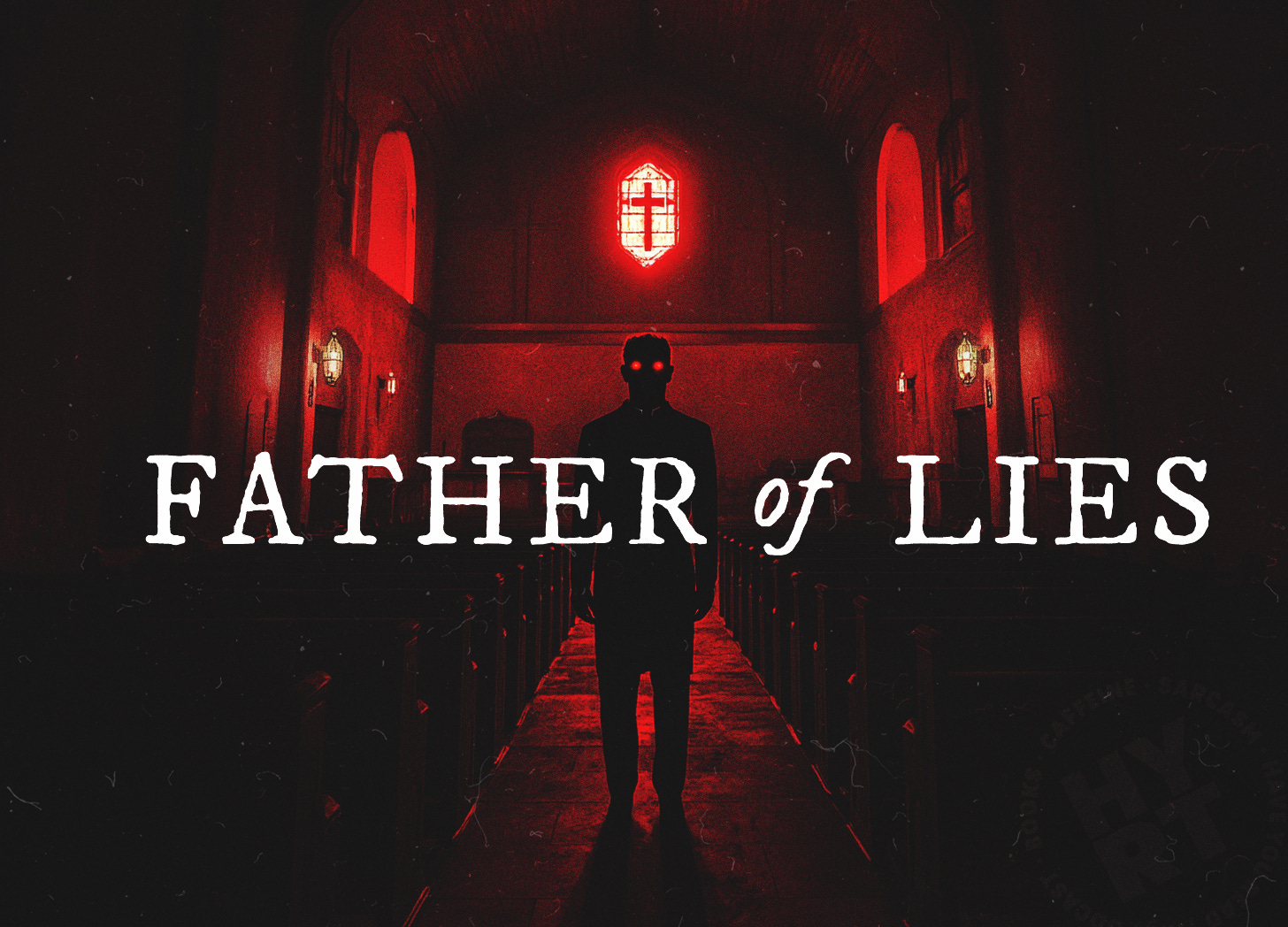Father of Lies
The Dark Reads list continues to grow with the addition of this novella by the masterful Brian Evenson.
First, you might be wondering why this is an article and not a podcast. Being sick and coughing so much that I lost my voice means rambling into a microphone isn’t as easy for me this week. This is the only other way I can bore you, with the written word.
Anyway.
One of the most proven methods for increasing my chances of reading a novel is to label it as “the most disturbing book” someone has read. Now, I of course need to qualify that person’s labeling.
Father of Lies by Brian Evenson popped up in a few posts recently on Facebook, which I guess proves that the social platform still somewhat serves a purpose beyond eroding the world around us.
GoodReads Synopsis
At the urging of his wife, Provost Fochs reluctantly agrees to see a therapist, Dr. Feshtig. Through the therapist's detailed notes, correspondence from the church, and the provost himself, the provost's sickness emerges and the reader is drawn into the disturbing inner workings of a violent pedophile.The provost relays his crimes in excruciating detail. 'God told me that where evil made its mark, good must follow, burning evil out and purifying the body.' Fochs describes a dream in which he sodomizes two boys from the parish in an effort to exorcise their sins. Soon thereafter, two boys come forward accusing Fochs of that very deed. In another dream he strangles and dismembers a young girl in the woods near his house, where a child from his parish is later found.
As the provost's dreams are discovered to be reality and accusations against him are made public, the church is forced to respond. In an effort to protect one of its own, and, in turn, to protect itself, the Committee for the Strengthening of the church demands that Dr. Feshtig turn over his notes about Provost Fochs. This marks the beginning of the church's all-out effort to cover up for the provost -- and launches the race to the novel's final revelation of whether good, in the form of the law, or evil, in the hands of the provost (and by association the church), will prevail.
Brian Evenson holds the reader to the page until the novel's fateful end. En route, he questions whether obedience to God justifies taking every possible liberty, right or wrong. And he brings to light how an institution supposed to be under divine guidance can be as eager as its worldly counterpart to soil its hands in the furthering of the cause of supposed righteousness.
This book is unsettling on just about every level that I had imagined, except one, which I will save for you to discover on your own when you begin reading it. It opens with letters between Provost Fochs’ psychiatrist and church leadership, laying open the wound that everyone seems to be aware of.
The story continues by introducing the reader to Fochs inner thoughts where he comes across at times as insane, other times, as criminal, but somehow aware that what he has been doing is wrong. Fochs is a master at manipulation, abusing the system, friendships, family, and leadership to do what he wants to do. Finally, Evenson mixes in more communication as the story intensifies, an aspect that I found really well done. We don’t just have the POV of Fochs, but are also given the mindset of others involved.
One of my favorite reviews offered this:
I cannot recommend this. I can only let you know of its existence, and that it is not a book meant to please, entertain, or cater to any audience expectations or desires. It is a book meant to ruin your comfort, perhaps permanently.
One might read this and feel that the church had wronged Evenson, so he took it out on them with this novella. Perhaps. He “left the church formally” in 2000, but this was said to be more about his writing than what happened to him personally while at the church.
The shock value from this story, sadly, does not come from being unaware that events like this take place. The shock value comes from being so close and intimate with the thoughts of the person committing the acts, many times were conducted without any emotion.
Hats off to Evenson for creating such a powerful and terrifying character as Fochs and bringing readers along for a roller coaster ride through his mind. Evenson does not need gore, profanity, or extreme horror to terrorize your thoughts. He slowly builds upon the discomfort until the end, when the gloves come off. When I began reading this, I imagined what the ending would hold for me, and I was not far off.
I found the ending even more challenging and infuriating than I expected. Yes, more so than the Tyson/Paul “fight”.







